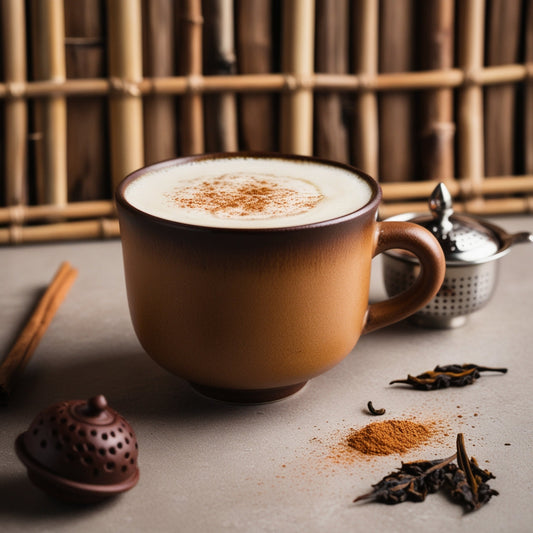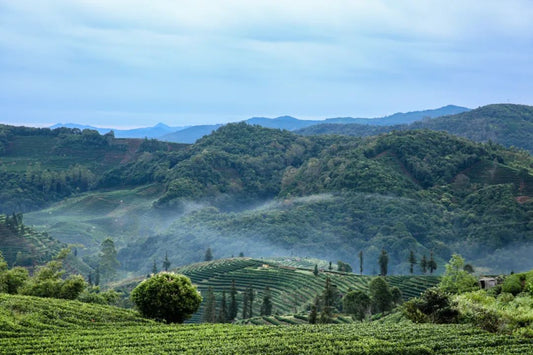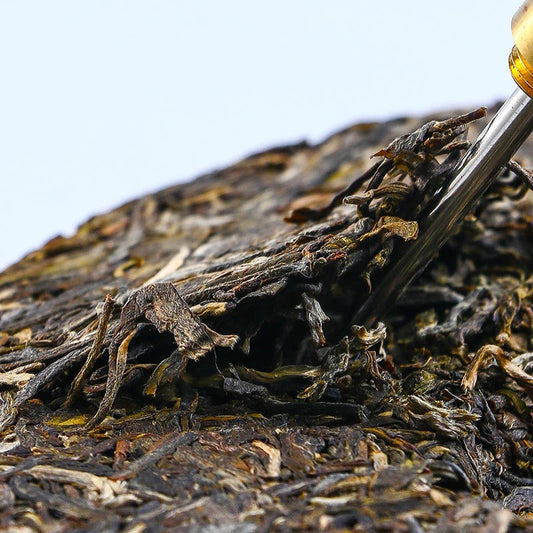Overview
Nestled in the southwestern region of China, Yunnan province emerges as a true gem, offering a gateway to the captivating world of pu-erh. In this guide we will explore the misty mountain slopes of Yunnan and how it produces the best tea i'e Yunnan's Pu-erh tea.
We will dig further to Its's landscapes which provide the perfect canvas for cultivating some of the finest pu-erh teas on the planet.
Furthermore, In this article, we will explore the extraordinary features that make Yunnan a revered destination for tea enthusiasts worldwide.
Table of Content
- Introduction
- The Unique Terroir of Yunnan
- Ancient Tea Forests and Biodiversity
- Sustainable Tea Farming Practices
- Specialized Tea Processing and Storage
- Yunnan's Rich Tea Culture and Heritage
- Pu-erh Craft's Commitment to Sourcing from Yunnan
- Conclusion
Introduction
Yunnan, a province renowned for its breathtaking natural beauty and diverse ethnic cultures, has long been a hub for the cultivation and production of pu-erh.
This enchanting land have a unique terroir, ancient tea forests, as well as a rich cultural heritage that have shaped the art of pu-erh tea production for centuries.
Moreover, This region's unique climate, topography, and soil composition have created an ideal environment for tea plants to thrive, resulting in pu-erh teas with unparalleled depth and complexity.
Let’s dive deep in this guide and discuss the unique landscape of Yunnan which makes it a “Tea Heaven”.
The Unique Terroir of Yunnan
Yunnan's tea culture is rich in history and tradition. Hence, making it a special place for tea lovers. The province's unique environment greatly influences the growth and flavor of its tea plants. Yunnan's mountainous terrain, tropical climate, and abundant rainfall create various microclimates, each adding distinct flavors and aromas to it's black teas.
The high elevation and misty conditions in regions like Xishuangbanna
and Pu-erh provide ideal conditions for tea plants, helping them develop unique flavor profiles. This sets this tea apart from others.
Here are the key environmental factors of Yunnan's territory:
1. Mountainous Terrain: The mountains provide a range of elevations, offering diverse growing conditions for tea plants.
2. Tropical Climate: The warm, tropical climate supports the growth of lush tea plants throughout the year.
3. Abundant Rainfall: Plenty of rain ensures that tea plants receive the necessary hydration for healthy growth.
4. Microclimates: Different regions have their own specific climates, contributing to unique flavors in the tea.
5. High Elevation and Misty Conditions: Areas like Xishuangbanna and Pu-er have high elevations and mist, which create perfect environments for developing distinctive tea flavors.
These environmental factors combine to make Yunnan a unique as well as exceptional region for producing high-quality black Pu-erh.

Ancient Tea Forests and Biodiversity
One of Yunnan's most remarkable features is its ancient tea forests, where wild tea trees have thrived for centuries. These forests are over a thousand years old. Moreover, they are home to rich plant and animal biodiversity. This creates a harmonious ecosystem that nurtures tea plant growth.
The ancient tea trees in these forests produce leaves. These leaves have unparalleled depth and complexity. Additionally, they contribute to Yunnan's unique Pu-erh character.
Preserving these ancient forests is essential. Not only does it maintain the region's tea heritage, but it also protects its ecological balance.
Sustainable Tea Farming Practices
1. Organic Farming: Farmers avoid synthetic fertilizers and pesticides, promoting natural growth.
2. Biodynamic Farming: This method involves working with natural rhythms and using natural composts and preparations.
3. Environmental Stewardship: By protecting the local ecosystem, farmers help preserve Yunnan tea's rich biodiversity.
4. Enhancing Tea Quality: Sustainable practices improve the natural flavors and authenticity of Pu-erh tea.
5. Cultural Preservation: These methods support the long-term sustainability of the tea industry and preserve Yunnan's cultural heritage.
These sustainable practices ensure that Yunnan's tea industry remains healthy and vibrant for future generations.
Specialized Tea Processing and Storage
Yunnan's Pu-erh tea production is renowned for its specialized processing as well as storage techniques. The region's "humid pits" are specialized facilities. They provide controlled temperature, humidity, and ventilation. These facilities play a crucial role. They facilitate the aging and fermentation of pu-erh tea.
Further, Skilled artisans meticulously monitor and manage this process. They ensure each batch of Yunnan tea reaches its full potential. The tea develops distinctive flavors and aromas over time.
Yunnan's Rich Tea Culture and Heritage
Yunnan's tea culture is deeply rooted in its rich history and traditions. Tea production and consumption are woven into the fabric of daily life.
In addition, the province's diverse ethnic communities have contributed to the region's vibrant tea heritage. Each community has its own unique tea ceremonies and rituals.
Additionally, Yunnan offers visitors an immersive experience. From ancient tea horse trade routes to modern-day tea tourism. Visitors can witness and appreciate the artisanal craftsmanship. This craftsmanship goes into producing world-class pu-erh teas.

Pu-erh Craft's Commitment to Source Best Yunnan Tea
At Pu-erh Craft, we take immense pride in sourcing our Pu-erh directly from trusted producers in Yunnan. Our team works closely with skilled artisans as well as tea farmers who have mastered the art of pu-erh tea production, ensuring that each batch captures the essence of Yunnan's terroir. Through our commitment to transparency and ethical sourcing practices, we strive to bring the finest pu-erh teas from Yunnan to tea enthusiasts around the world, while supporting the region's sustainable practices and preserving its cultural heritage.
Conclusion
Given these points, Yunnan province stands as a true gem, offering a gateway to the captivating world of Pu-erh tea. From its unique terroir and ancient tea forests to its sustainable farming practices and rich cultural heritage, every aspect of Yunnan's tea industry is a testament to the region's commitment to excellence and preservation.
Also, As you savor the rich, complex notes of a perfectly aged pu-erh tea from Yunnan, you'll be transported to a world of tranquility and appreciation for the artisanal craft that has been passed down through generations. Embrace the journey and discover the true essence of Yunnan – a harmonious balance of flavor, tradition, and sustainability.
At last, Experience the captivating world of Yunnan's pu-erh tea by exploring our carefully curated selection at Pu-erh Craft.
Q&A Section
Q1: What makes Yunnan's terroir so unique for pu-erh tea production?
A1: Yunnan's mountainous terrain, tropical climate, and diverse microclimates create an ideal environment for tea plants to thrive, resulting in pu-erh teas with distinct flavors and aromas.
Q2: Why are Yunnan's ancient tea forests so important?
A2: These ancient forests, some over a thousand years old, are home to wild tea trees that produce leaves with unparalleled depth and complexity, contributing to the unique character of Yunnan's pu-erh teas.
Q3: How does Yunnan's tea industry promote sustainability?
A3: Many tea growers in Yunnan follow organic and biodynamic farming methods, avoiding synthetic fertilizers and pesticides, while preserving ancient tea forests and cultural traditions.
Q4: What makes Yunnan's tea processing and storage techniques unique?
A4: Yunnan's "humid pits" and skilled artisans meticulously manage the aging and fermentation process, allowing pu-erh teas to develop their distinctive flavors and aromas over time.
Q5: Why should you experience Pu-erh Tea from Pu-erh Craft?
A5: At Pu-erh Craft, we source our pu-erh teas directly from trusted producers in Yunnan, working closely with skilled artisans and tea farmers who have mastered the art of pu-erh tea production.






